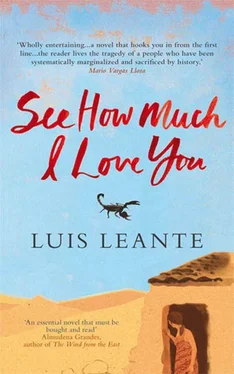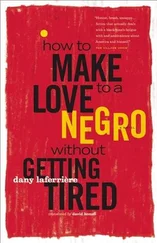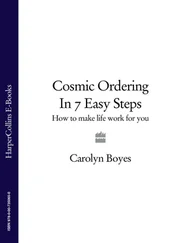The picture confused Doctor Cambra. A moment later, when she held it up in her shaking hands, she realised why: the moustachioed man in desert clothes was Santiago San Román. She traced the image with her finger, not sure whether it was an illusion. But her doubts were soon dispelled. She flipped the picture and discovered what seemed to be a dedication in Arabic, in blue smudged letters. Underneath it read clearly: “Tifariti, 18-1-1976”. The date was so conclusive that it left no room for uncertainty. If Santiago San Román had died in 1975, as she had always thought, that young man could not be the guy who, on a hot July afternoon twenty-six years to this date, had approached her and her inseparable friend Nuria while they were waiting for a bus on Avenida del Generalísimo Franco.
It happened in the early summer of ’74. Montse would never forget the date, no matter how many years went by. It was the first time her parents had gone on holiday to Cadaqués and left her at home. She’d never been on her own in her life, and that summer she wasn’t either. A maid called Mari Cruz, who cooked, made the beds and looked after her, had stayed at the house on Vía Cayetana. Montse had turned eighteen barely a month before, and had graduated from secondary school with excellent marks. Still, her father thought that in order to study medicine one needed more than an outstanding student record, so Montse was denied a summer holiday for the first time in eighteen years. And, while the days blended into each other by the sea, she attended a private academy in the morning and afternoon, where she brushed up on maths and chemistry and took up German.
The Academia Santa Teresa was situated on the mezzanine of a building on Avenida del Generalísimo Franco. There was a dance academy on the floor above it, which in the summer gave full-immersion courses from eight o’clock in the morning till nine in the evening. While Montse and her inseparable friend Nuria tried to focus on their logarithms, the desks of the classroom would vibrate to the stamping heels of the flamenco dancers or the broken rhythms of a tango. In those conditions it was easy for one’s eyes to stray to the window, and one’s attention would follow the same way, focusing on a handsome guy or the shops across the road. But the monotony was soon to be broken, on a day when Montse and Nuria were waiting for the bus, having lost all hope that something would save them from the boredom of the summer and the heat.
Perhaps it was boredom that made the two friends glance at the white convertible with very big plates that stopped on the other side of the road. It was a foreign car, possibly American. Apart from the unusual model, they noticed that inside it were two young, handsome, very well dressed guys who would not stop staring at them. Neither Montse nor Nuria dared to say something, but they both knew that sooner or later something out of the ordinary would happen. And indeed, in a dangerous, spectacular move, the car drove across the road and screeched to a halt by the bus stop. That was the first time Montse saw Santiago San Román. Although the boy was only nineteen, his brilliantined hair, his clothes and the car made him look more mature. He and his friend got out of the car at the same time and approached the girls. ‘The service on this line has been suspended,’ he said in an accent that instantly gave away that he was not from Barcelona, ‘me and Pascualín have just found out.’ The other people waiting at the bus stop exchanged incredulous glances. Only Montse and Nuria smiled, their curiosity piqued. ‘It’ll take a day or two at most,’ added Pascualín. ‘But if you don’t want to wait that long, myself and my friend here can give you a ride to wherever you’re going.’ As Pascualín spoke, Santiago pointed to the splendid car. Pascualín opened the door on the passenger’s side, and Montse, acting on an impulse she’d never felt before, said to her friend. ‘Come on, Nuria, they’re driving us.’ Nuria sat in the back with Pascualín, and Montse in the spectacular front seat, which was ample and luxurious, covered in very pale tan leather. Santiago San Román hesitated for a second, his eyes wide open, as if he couldn’t believe the two girls had taken him up on the invitation. He got nervous at the steering wheel when Montse asked: ‘And what’s your name?’ ‘Santiago San Román, at your service,’ he replied, in a ridiculous-sounding stab at humbleness.
It was the craziest thing Montse had ever done. Sitting next to Santiago San Román, she felt the heat and the boredom float away. They drove in silence, all four enjoying the sensation, lost in their own thoughts. And so, when they went round Plaza de la Victoria and past Vía Layetana, Montse didn’t say a thing. They drove into Plaza de las Glorias Catalanas as though they were part of a triumphant parade. Every now and again Santiago would glance at her, or turn to look at her head-on as she lifted her hair for the breeze to run through it. After a while they stopped at the Estación del Pueblo Nuevo. The sea air smelled of stagnant water. Once the car was parked, Montse opened her eyes as though she were waking up from a slumber. ‘Why are you stopping?’ she asked, with forced self-confidence. ‘This place is horrible.’
‘Okay, but you haven’t told me where you live.’
‘On Vía Layetana,’ replied Nuria quickly, less at ease than her friend. Santiago did a U-turn and drove back the way they’d come. Suddenly Montse became talkative and started asking all kinds of questions.
‘It’s my father’s car, I don’t make enough to own a Cadillac.’ ‘In a bank, I work in a bank. Well, actually, my father’s the manager, and I’ll be the same one day.’ ‘Yes, Pascualín too; we both work at the same bank.’
Meanwhile, Pascualín and Nuria were oblivious to the conversation. As Santiago answered the questions, he dug himself deeper and deeper into a hole. ‘Pull up here, please. This is where Nuria lives,’ said Montse all of a sudden. In fact the girls were neighbours, but Nuria realised what her friend’s intentions were, and reluctantly got out of the Cadillac.
‘Will you not walk her?’ said Santiago to Pascualín, reproachfully. The convertible proceeded down the road and stopped where Montse indicated. For the first time she looked him in the eyes; he struck her as the handsomest guy she’d ever met. She let him tell more lies. Santiago, however, didn’t ask any questions. It was hard enough to have to reply to the ones Montse was continually asking him. Eventually, he said: ‘This feels like an interrogation.’
‘Do you mind my questions?’
‘No, no, I don’t mind them at all.’
It’s just that when I jump into someone’s car I like to know who the guy is,’ said Montse, coyly. ‘Don’t go thinking, though, that I do this every day.’
‘No, no, I don’t think that at all. But the thing is, I’ve told you everything, and you…’
‘What would you like to know?’ she cut in.
Santiago hesitated before asking: ‘Do you have a boyfriend?’ For the first time Montse’s confidence faltered. Now it was she who hesitated before replying: ‘No, not a boyfriend as such — but I’ve got admirers,’ she said, trying to keep her cool. ‘What about you, do you have a girlfriend?’
‘No, no; I don’t like commitment.’ Even before finishing the phrase he wished he hadn’t said it. Confused and without exactly knowing why, he placed a hand on her back and stroked the nape of her neck. Montse, also without thinking clearly, drew near and kissed him on the lips. But when Santiago tried to hold her in his arms and kiss her more deeply she slipped away, pretending she was offended.
‘I have to go now,’ she said, ‘it’s getting late.’ She opened the door, got out of the car, and only stopped when Santiago San Román shouted to her worriedly:
Читать дальше




![Ally Carter - [Gallagher Girls 01] I'd Tell You I Love You But Then I'd Have to Kill You](/books/262179/ally-carter-gallagher-girls-01-i-d-tell-you-i-lo-thumb.webp)







